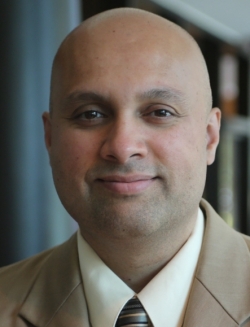Speaker Details


Sandeep Sovani
Dr Sovani has worked for over two decades at several prominent high-tech companies with focus on engineering modeling and simulation (M&S). His career focus is on creating great businesses out of great technologies. At Amazon Web Services (AWS), Dr Sovani is responsible for driving the company's worldwide technology and business strategy and go-to-market initiatives for high-performance computing (HPC) for engineering simulation. Prior to AWS, Dr Sovani served for nearly a decade as the global director for the automotive industry at Ansys Inc. – the world's largest engineering simulation software company. He held the overall responsibility for the company’s technology strategy, go-to-market strategy, strategic initiatives and technology acquisitions, in the automotive segment. He has made numerous contributions to simulation technology for electric vehicle (EV) and autonomous vehicle (AV) applications, including serving as simulation director for the Indy Autonomous Challenge, an autonomous vehicles racing competition. Dr Sovani holds a PhD in mechanical engineering from Purdue University. He has authored more than 40 papers, articles and reports and has delivered numerous invited lectures at academic and industry conferences. He was the founder and chair of the Automotive Simulation World Congress. He is the recipient of the Lloyd Withrow Distinguished Speaker Award from the Society of Automotive Engineers.Presentation
Panel discussion - Future of virtual engineering
Automotive OEMs and suppliers have been using virtual engineering approaches for product development for over a decade. Virtual engineering is expected to play a broader role in the future with the advent of new technologies such as AI and cloud infrastructure. This panel will share unique insights from leaders who are at the forefront of developing and applying virtual engineering methods at some of the world’s leading automotive companies. First, we will hear from the panelists about the current state of virtual engineering – how virtual engineering is being utilized today, what impact it is having and what challenges and opportunities it is facing. The discussion will conclude with the panelists providing an outlook into a vision for the future – what new technologies are coming on the horizon, how they will change virtual engineering processes and what impact they will have on the overall automotive product development process.